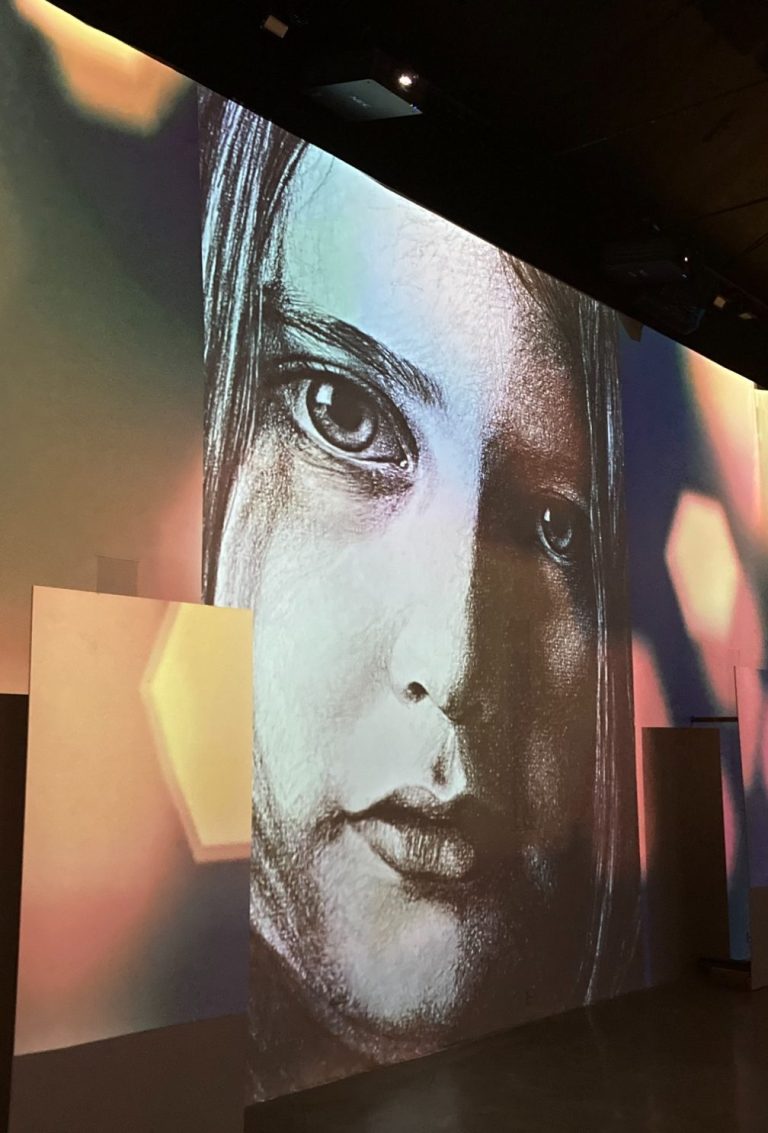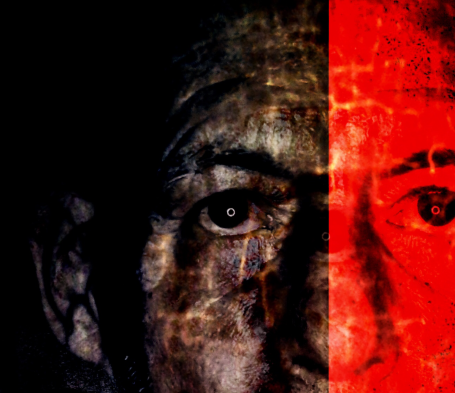Our Aims
Warhead Project UK aims to harness the power of the arts to address mental health challenges faced by veterans, military personnel and the wider community.
Through innovative exhibitions and creative workshops, we seek to inspire healing, foster emotional well-being, and promote recovery from trauma.
Our mission is to bridge the gap between mental health support and artistic expression, creating a space where those affected can explore their experiences and build resilience through the transformative power of creativity.
Jason Fearnley: I'm a UK military veteran who served with the Royal Navy Submarine Service from 1985 to 2008. I have been working with UK veterans for the past six years using creative activities to help treat invisible injuries.
Likes: Art, music and laughter
Dislikes: Injustice
Motto: "Never give up."
Meet the Team

Tommy Reid: In my early career, I worked as a street and event entertainer, collaborating with musicians and organisations like Glasgow City Council and Disney Club Edinburgh Playhouse. I also served as an ambassador for Glasgow City Council, representing the city in Nuremberg and Rostov on Don.
More recently, I founded the charity Eat Up and in 2018 the Kindlift CIC project, which provides furniture to individuals transitioning from homelessness to housing. I also lead Blueprint Imagine, a group focused on improving lifestyles.
With a BA (Hons) and MA in Psychology, Innovation, and Entrepreneurship, my goal is to contribute to meaningful change.
Likes: Travel, meeting people and a bacon roll.
Dislikes: A hubbub.
Motto: "Coming together is a beginning. Keeping together is progress. Working together is success."


Geoff Andrews: Ex Royal Navy Submariner.
Former International Exhibition Manager working in Russia & Eastern Europe. Former HGV 1 driver and now working in all aspects of healthcare and loving it.
Likes : Music , photography, reading (though I don’t do enough of it) and walking, with and without my dogs.
Dislikes: Self centred people - Arty Farty people.
Motto : “It’s Too Late to Stop Now.“

Joyce Mann: "As an RAFVR(T) veteran I have been privileged to work with so many amazing individuals and experience training opportunities that pushed me to my limits.
I have had a varied a career in business, education and youth management and training. I was director of a motorcycle courier company, a teacher and my last post was as the SO2 for the RN/RM Youth HQ. I currently volunteer at a dedicated activity centre for veterans in the community, where every day is a school day, different and always great fun."
Likes: Waking up to see what the new day will bring, family and good friends!
Dislikes: I don't have time for dislikes - if I don't like it, I don't do it / read it / eat it! However, I really don't like spiders !!!!!
Motto: Be happy! Smile and say hello to at least 1 person every day.
Warhead Project UK is a non-profit organisation dedicated to raising awareness of mental health issues, fostering resilience, and promoting healing through creative expression and meaningful connections. Founded by veterans, the project brings together the arts, history, and community engagement to create a platform for conversation and support, especially for those affected by the traumas of military service and life-altering experiences.
Our mission is rooted in the belief that creativity has the power to transform lives, and we aim to bridge the gap between mental health challenges and community support by hosting impactful events, exhibitions, and programs across the UK. By collaborating with artists, veterans, historians, and supporters, Warhead Project UK develops immersive experiences that encourage reflection, empathy, and understanding.

Morag Tester BA PSYCH, PG DIP CG, DN, PG Dip Chyp, Dip Hb:
I have worked as a Psychotherapist for a number of charities, the NHS and the Education Sector, lecturing at Strathclyde University, Glasgow and The University of West London.
Throughout my career I have worked to support people of all ages including veteran's, whose mental health has suffered because of PTSD, anxiety, depression, terminal illness & suicide.
Over the last 7 years I have had the privilege to work with many veterans across the West of Scotland.
Likes: The beauty of nature as it travels through the seasons, The power of a hug and the sound of laughter.
Dislikes : Cold Coffee
Motto: Look for and celebrate the little good moments of every day.

Mac McDade: A Royal Navy veteran, co-founder of Warhead Project UK, artist, tutor and creative producer with a passion for storytelling through visual art. Mac served onboard HMS Plymouth during the Falklands War and brings a unique perspective shaped by lived experience. He enjoys the outdoors, music, movies, good TV and photography.
Likes: Coffee, learning and dark chocolate.
Disllikes: Marzipan, bad driving and having cold feet.

The Inspiration
Jason Fearnley and Mac McDade, both Royal Navy veterans and active members of the veteran community, work as a woodcraft tutor and art tutor respectively. Every day, they witness firsthand the therapeutic power of creativity and the arts on mental health and wellbeing.
During a recent period of self-reflection, Jason began creating digital art to express his inner thoughts. The positive response to his work sparked the idea of an exhibition that would showcase artwork by veterans, highlighting the beneficial effects of creativity on mental health.
Mac, with a deep interest in art therapy and neuroarts, had already been creating pieces inspired by his personal experiences. When Jason shared his vision, Mac eagerly joined the project. Together, they developed the concept into the Warhead Exhibition, featuring original artworks—including paintings, digital art, and photography—enhanced by video and audio, all inspired by the lived experiences of veterans from the Armed Forces.
The exhibition invites viewers to explore how visual art can positively impact mental health and wellbeing. At its core, the veterans themselves—who embrace creativity as a tool for growth and healing—serve as the driving inspiration behind this transformative experience for all involved.


Emerging brain research proves what artists and art lovers have sensed all along: Art can make us feel better, happier, healthier, and smarter.
Depression, anxiety, angst, grief and loneliness: despite its frequent occurrence in people's lives and attempts to destigmatise mental health, we still find it difficult to discuss psychological distress, never more so than in the Armed Forces.
As a society we have relegated art to entertainment or an escape, a luxury of some kind. However, technology advances within the last 35 years or so have allowed us to have greater insight into how our brain works and how the arts and aesthetics affect us. The results are astounding.
The UK is among the countries that have moved further, faster, to activate use of the arts and aesthetic experiences to support health and wellbeing. Emerging brain research proves what artists and art lovers have sensed all along: Art can make us feel better, happier, healthier, and smarter. The arts and aesthetic experiences impact human biology and behaviour in ways that differ markedly from any other health intervention. The human brain is uniquely wired for art.



Our Armed Forces: The Current Situation
Summary of the UK Armed Forces Mental Health Annual Report 2024/25:
Overall prevalence:
• 12.3% of serving personnel (≈ 1 in 8, n=18,522) accessed military healthcare for a mental health-related reason.
• Down from 13.0% in 2023/24 – largely due to fewer presentations among those aged 20–29.
Specialist treatment:
• 1.9% of personnel (≈ 1 in 52, n=2,887) were seen by MOD Specialist Mental Health Services (DCMH or inpatient).
• Lower than the UK general population rate (~6.3% accessing secondary care).
Common disorders treated:
Depressive episodes (32% of specialist cases; 0.6% of all personnel)
Anxiety (24%; 0.4% overall)
Adjustment disorders (22%; 0.4% overall)
PTSD prevalence: 0.3% (≈3 in 1,000 personnel), stable compared to recent years.
Alcohol-related mental health issues: Extremely low – <0.1% of personnel required specialist treatment for psychoactive substance misuse.
Demographic Insights
Service differences:
Royal Navy: Highest overall presentations (14.1%); 2.2% needed specialist care.
RAF: Similar to Navy, 14.3% overall.
Army: 11.5% overall; 1.9% specialist care.
Royal Marines: Lowest overall (6.3%); 1.3% specialist care.
Gender:
• Females seek help at double the rate of males (23.6% vs 10.9%).
• This mirrors civilian trends.
Rank:
• Other ranks: 13.8% overall.
• Officers: 10.0% overall.
Age groups:
• Highest rates in 30–49 years (≈15–16%).
• Lowest in under 20s and 50+ (~10–12%).
Ethnicity:
• White and mixed ethnic groups report highest help-seeking (~13%).
• Asian personnel report lowest (~4%).
Trends Over Time
Mental health consultations steadily increased from 2012 to 2022, peaking at 13.2%.
Since 2022/23, rates are declining slightly – partly due to:
Better primary care support since 2018, allowing more mild/moderate cases to be managed by GPs.
Fewer operational deployments to Iraq and Afghanistan, which historically drove higher PTSD rates.
Deployment Impact
Historically, PTSD and depression rates were significantly higher in personnel deployed to Iraq and Afghanistan.
In 2024/25, PTSD risk remains 63% higher for those previously deployed, but other disorder differences have reduced over time as that cohort leaves service.
Comparison to UK General Population
Overall military mental health help-seeking (12.3%) is broadly similar to civilians (~13.2%).
However, specialist treatment rates are far lower in the Armed Forces (1.9%) vs UK civilians (~6.3%), likely due to:
Rigorous recruitment health screening.
Unit cohesion and support networks.
Medical discharge of severe cases.
Key Implications
Most Armed Forces personnel manage mental health issues through GPs and self-help interventions.
Specialist mental health demands are low but steady – predominantly depression, anxiety, and adjustment disorders.
Preventative strategies, early GP intervention, and resilience-building appear effective, but female personnel and those aged 30–49 remain higher-risk groups.
Watch the MOD video: UK Armed Forces Mental Health: Ratio ratios explained
